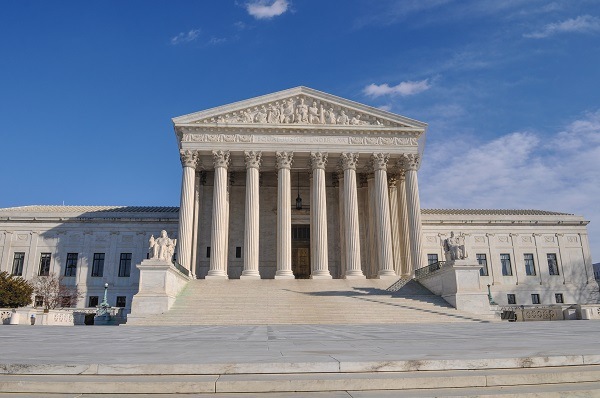Continuing the saga stemming from the California Supreme Court’s decision in Dynamex Operations West v. Superior Court, 4 Cal. 5th 903 (2018) (“Dynamex”), on September 4, 2020, Governor Newsom signed into law AB 2257 which went into effect immediately and essentially revised and expanded the exemptions previously listed under AB 5.
AB 5 expanded the reach of Dynamex by making the “ABC Test” the default standard for all Labor Code, Unemployment Insurance Code, and Wage Order claims with respect to determining whether independent contractors should actually be treated as employees. AB 5 greatly narrowed which workers could properly be classified as independent contractors. While AB 5 also included several exemptions, it left out many industries that people thought should have been included, causing mass uncertainty, confusion, and resistance when enacted.
As a quick refresher, under the ABC Test, a defendant must prove that (1) the worker is free from control and direction of the hiring entity in connection with performing the work, both under contract and in fact, (2) the worker performs work outside the usual course of the hiring entity’s business, and (3) the worker customarily engages in an independently established trade, occupation, or business of the same nature as the work performed for the hiring entity to be considered an independent contractor.
AB 5 requires that all three prongs must be met for a worker to be properly classified as an independent contractor. AB 5 also provides for broad governmental enforcement by enabling the Attorney General and certain city attorneys to be able to pursue injunctions against businesses suspected of misclassifying independent contractors.
AB 2257 maintains the essential framework of AB 5, and the ABC Test remains the default standard for independent contractor misclassification, but it revises and expands exemptions from the ABC Test for certain industries.
Notably, in addition to expanding the number of industries eligible for an exemption, AB 2257 modified AB 5’s business-to-business exception, although, arguably, not for much better.
AB 2257 maintains the business to business exemption found in AB 5, but revises the exception by making the applicable test the 12-factor test outlined in Borello v. Department of Industrial, 48 Cal.3d 341 (1989); but only if it also meets the following 12-factor criteria:
- The business service provider is free from the control and direction of the contracting business entity in connection with the performance of the work, both under the contract for the performance of the work and in fact.
- The business service provider is providing services directly to the contracting business rather than to customers of the contracting business. This subparagraph does not apply if the business service provider’s employees are solely performing the services under the contract under the name of the business service provider and the business service provider regularly contracts with other businesses.
- The contract with the business service provider is in writing and specifies the payment amount, including any applicable rate of pay, for services to be performed, as well as the due date of payment for such services.
- If the work is performed in a jurisdiction that requires the business service provider to have a business license or business tax registration, the business service provider has the required business license or business tax registration.
- The business service provider maintains a business location, which may include the business service provider’s residence, that is separate from the business or work location of the contracting business.
- The business service provider is customarily engaged in an independently established business of the same nature as that involved in the work performed.
- The business service provider can contract with other businesses to provide the same or similar services and maintain a clientele without restrictions from the hiring entity.
- The business service provider advertises and holds itself out to the public as available to provide the same or similar services.
- Consistent with the nature of the work, the business service provider provides its own tools, vehicles, and equipment to perform the services, not including any proprietary materials that may be necessary to perform the services under the contract.
- The business service provider can negotiate its own rates.
- Consistent with the nature of the work, the business service provider can set its own hours and location of work.
- The business service provider is not performing the type of work for which a license from the Contractors’ State License Board is required, pursuant to Chapter 9 (commencing with Section 7000) of Division 3 of the Business and Professions Code.
AB 2257 broadened the business-to-business exception and allows a business to provide services to customers, as opposed to other businesses, as long as the services are being provided under the business name and the business provides services to other businesses as well. In addition to the industries listed in AB 5 as eligible for this business-to-business exemption: moving, home cleaning, errands, furniture assembly, graphic design, photography, tutoring, event planning, minor home repair, animal services, dog walking, dog grooming, web design, picture hanging, pool cleaning, and yard cleanup. AB 2257 now includes exceptions for recording artists, musicians, performing artists, people who provide underwriting inspections and other services for the insurance industry, manufactured housing salespersons, referral agencies, freelance writers and photographers, fine artists, landscape architects, competition judges, and more.
The criteria for these exemptions are very detailed and provided for within the statute. Any employer that uses independent contractors should review the exceptions listed in AB 2257 to determine whether any independent worker they use is properly classified.
Importantly, AB 2257 does not provide exemptions for those who work as drivers for app-based companies such as Uber, Lyft and DoorDash. These companies have launched a multi-million-dollar political campaign to have voters reclassify their drivers through the passage of Proposition 22 in November.


